Tehran Shuts Schools, Offices As Iran’s Air Pollution Persists

All schools, universities, and businesses in Tehran and other cities of the province were closed Wednesday, some for the second day, due to air pollution.

All schools, universities, and businesses in Tehran and other cities of the province were closed Wednesday, some for the second day, due to air pollution.
Tehran Governor Mohsen Mansouri announced the measure following a decision by the Tehran Province Air Pollution Emergency Committee. The neighboring province of Alborz, the southern province of Khuzestan, East Azarbaijan province in the north west, and Esfahan province in central Iran also reported shut-downs due to air pollution including severe sandstorms.
The air quality index in many Iranian cities, including Tehran and Kermanshah, has reached a maximum level, making it hazardous for people to leave their homes. While Tehran’s air is among the world’s most polluted, many large Iranian cities face similar problems, especially when power stations use heavy diesel fuels as demand for electricity runs ahead of the supply of natural gas.
Dust storms, originating in both Iran and neighboring countries, have also increased markedly in recent years in several Iranian provinces, notably Khuzestan, Kermanshah, and Sistan-Baluchestan. While there have been efforts to reduce such storms through more effective management of water resources and planting drought-resistant trees in arid areas, these have so far proved inadequate.
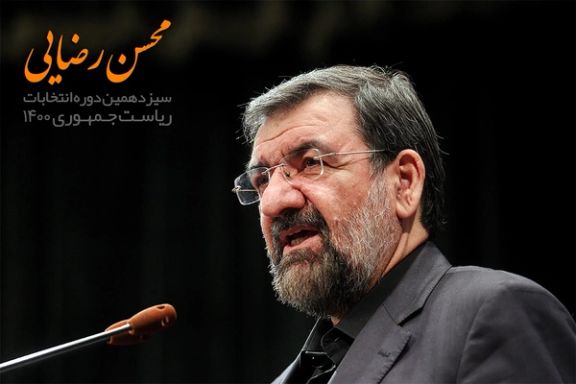
Vice President for Economic Affairs Mohsen Rezaei says Iran is facing yet another difficult year, as recent price hikes led to several days of protests.
During a visit to Khuzestan Province on Monday, he also said that Iran has been experiencing a 40 percent inflation rate for several years now.
Rezaei argued that the people should be convinced the government has an economic plan and is trying to solve their problems. His remarks contradicted many Iranian analysts and politicians including several lawmakers who have charged that the Raisi administration does not have an economic plan and it is his economic team's ad-hoc decisions that have led to an economic crisis.
Rezaei told Friday prayers imams of Khuzestan that the government is trying to gradually reform the economy and that President Ebrahim Raisi has asked several think tanks to write a document about “this evolution.” He further claimed that in the past 26 years Supreme Leader Ali Khamenei has repeatedly called on successive governments to start economic reforms, but nothing has been done.
Rezaei, a military man with no experience in running the economy, made uncalculated comments a few months ago, which led to an unofficial ban on him to declare economic policies. His comments on Monday coincided with president Raisi being absent, on a visit to Oman.

The vice president was last seen Tuesday morning sitting on the floor of a building in Abadan with Interior minister Ahmad Vahidiand a group of local officials, reportedly leading a meeting about relief work following the collapse of a high rise building which killed 16 people, and tens of others injured or gone missing.
Saeed Hafezi, a local reporter, told the Iran International TV Tuesday afternoon that the owner of the collapsed Building Hossein Abdolbaghi was linked to Mohsen Rezaei, adding that while Abdolbaghi was reportedly arrested, it was said after Rezaei's arrival in Abadan that he was killed under the debris.
Meanwhile, commenting on Rezaei's remarks on the Iranian economy during the year, Reza Gheidi, an economic journalist in Tehran told Iran International TV that Iranians no longer believe or trust remarks or promises by state officials, mainly because they constantly contradict themselves.
Gheidi added that the situation is marked by the people's disillusionment and disappointment about state officials' ability to deal with the economic crisis. Iranians are currently thinking of food not as something that can keep them healthy, but as something that can simply fill their stomach, as prices have doubled and tripled in recent weeks.
Meanwhile, Ahmad Alirezabeigi, a lawmaker for Tabriz has harshly criticized state officials "for insulting Iranians' intelligence when talking about the economy and the causes of protests from 2018 to 2022."
The lawmaker said that the people are feeling the pressure of rising prices with their flesh and bones as the impact of the government's policy of removing food subsidies has given rise to further inflation. He characterized state officials’ promises about no further price rises as "nonsense."
While the government insists that it has hiked the price of a few food items, another lawmaker, Hassan Lotfi, said on 21 May that price rises have already impacted a range of some 700 household items.
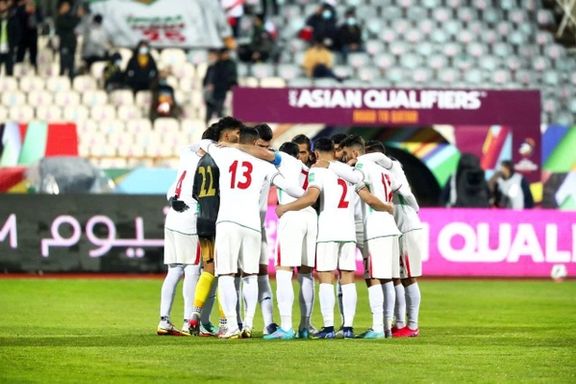
The Canadian government has told Iran International that all visitors are carefully screened before entering Canada, dodging a direct response whether the Iranian football team will be allowed in the country.
In response to an inquiry by Iran International Tuesday, Canada’s Immigration, Refugees and Citizenship department (IRCC) said it is committed to the fair and robust application of immigration procedures and also to the safety and security of the Canadian public. But Fars News Agency, affiliated with the Revolutionary Guards, said on Wednesday that the match between Canada and Iran is on the verge of cancellation as Iranian players may not be able to obtain visas to enter Canada.
“All visitors to Canada from visa-required countries must meet the visa eligibility requirements" the IRCC said, adding, “background screening is an important part of the overall assessment of whether a person is admissible to Canada.”
The Iranian national soccer team’s manager Hamid Estili, who is going to Canada for the controversial friendly next month, recently attended a party with Mahmoud Khazein, who is wanted by the FBI in relation to a plot to kidnap international targets, including three people in Canada.
On Tuesday, Prime Minister Justin Trudeau reiterated his belief it was a "bad idea" to host the game but said ultimately it is not his decision about whether it will be allowed to go ahead.
The match has angered those who lost loved ones in Iran’s downing of Flight PS752 in 2020, and are demanding that Canada Soccer abandon its plan for the game, saying they feel "betrayed" by the decision to have the Iranian team in British Colombia, a sentiment the prime minister said he shares.

A journalist in Iran has accused authorities of covering up the escape of the owner of a building that collapsed in Abadan Monday, and claiming that he is dead.
The Iranian Red Crescent has reported eleven deaths and warned about the collapse of the rest of the building. So far 39 have been pulled from the rubble alive. Rescue operations cintinued Tuesday as there were as many as 50 people buried under the rubble. Three rescue workers were injured on Tuesday when another part of the building collapsed.
Saeed Hafezi, a journalist and whistle-blower, claims that Hossein Abdolbaghi, owner of one of the ten-story Metropol twin towers which collapsed Monday, was seen leaving the building half an hour before it collapsed, and authorities are lying about his death in the accident. Hafezi says he has personally spoken to a witness.
Radio Goosheh Kenar, a local internet radio station run by Hafezi, on Tuesday published an audio file sent by a man claiming to be an employee of the Abadan coroner’s office who claims officials of the coroner’s office were pressured by unidentified authorities to issue a death certificate in Abdolbaghi’s name for an unidentifiable body they brought in. The man whose voice was altered in the recording says the coroner’s office has so far not relented to outside pressure and declined to issue a death certificate.
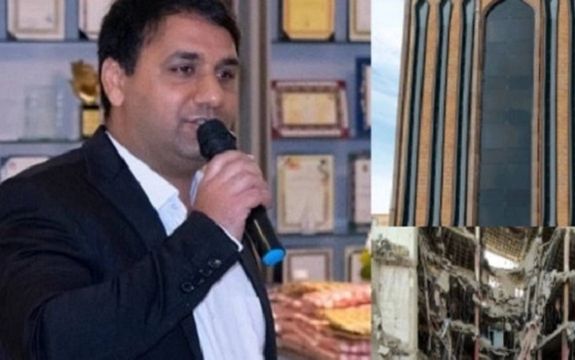
Initially, suspicions arose right after the collapse of the building on Monday when media, including the official news agency (IRNA), reported Abdolbaghi’s arrest but on Tuesday prosecutor general of Khuzestan province, Sadegh Jafari-Chegeni, told the judiciary’s news agency, Mizan News, that he died in the incident. Abdolbaghi’s identity papers were discovered on a very badly damaged and unidentifiable body in the rubble, he said, and the body was eventually identified as belonging to him, officials claimed, without saying who made the identification.
A photo taken from CCTV footage in the area has also been circulating on social media allegedly showing Abdolbaghi running away after the incident. Dariush Memar, a journalist currently residing in London, in a tweet Monday said he had met Abdolbaghi in Iran many times and he can confirm that the man in the photo is highly likely to be him, “unless a photo of his body is shown at the coroner’s office by the justice department of Abadan.”
Abdolbaghi, 40, is a well-known entrepreneur in Khuzestan with alleged strong connections with influential officials and centers of power. In 2018 the ministry of industries, mines and trade named him as the top entrepreneur of the Arvand Free Zone in Khuzestan.
In an article published in August 2020 in Feydus, an Iranian news website, Memar accused Abdolbaghi of corruption. “His formula for amassing wealth, like many others in Iran today, is very simple: Clever management of connections and opportunities based on rente.” ‘Rente’ is a French word used in Persian to imply privileges resulting from undue influence.
He also had close connections with the police and security forces who once gave an award.
The head of Iran’s Construction Engineering Organization, Hamzeh Shakib, on Monday said adding three extra stories to the original plan built illegally had caused the tragedy of the building’s collapse. He also said the organization had several times reported critical faults in the construction of the building, including in their most recent report, but the municipality of Abadan which was responsible for stopping the construction ignored the warnings.
Authorities say they have arrested ten officials including the current mayor of Abadan and two former mayors, for negligence leading to the tragedy of the building’s collapse.
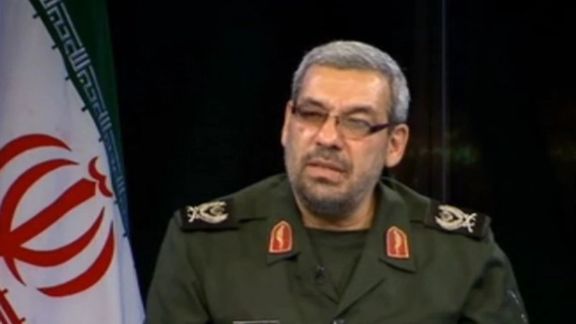
General Morteza Mirian, commander of Iran’s Revolutionary Guards’ ground operations, has claimed that 4,000 relatives of “senior officials” live in the United States, Canada, and Europe.
Mirani said during a live television show Tuesday they should be “tracked” so as not to be allowed back to Iran to take up managerial positions. He drew a parallel with the 1980-88 war with Iraq, saying that no Iranian official would have allowed family members to live with Saddam Hussein, the Iraqi president, comparing him as an enemy with the West. Mirian suggested that what amounted to an exodus of these Iranians resulted from a weak commitment to revolutionary ideology.
A figure of 5,000 “descendants” of senior officials living abroad was cited in 2020 by Mohammad Gharazi, communications minister between 1985 and 1997 who was at the time considered a presidential hopeful. In November 2021, Alireza Salimi, a member of parliament, suggested that officials from the previous administration, under President Hassan Rouhani, including deputy ministers had moved to Europe due to fears they would be banned from leaving the country.
In 2019, Brian Hook, special representative for Iran (from 2018 to 2020) under President Donald Trump told Iran International that “children of Islamic Republic officials live rich and comfortable lives in the United States and other countries while Iranian people live in terrible conditions.” Hook said this showed “the regime’s hypocrisy.”
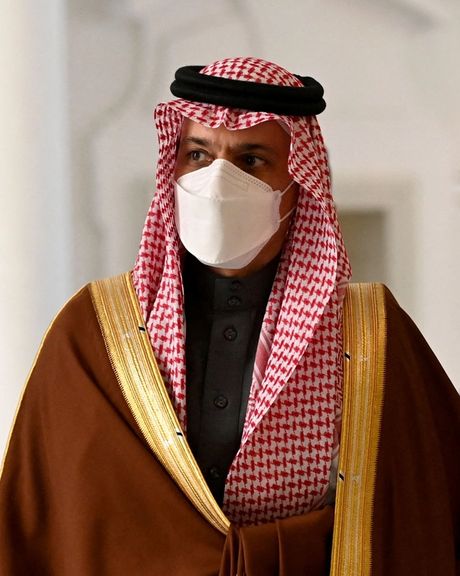
Saudi Arabia's foreign minister said on Tuesday that there had been some progress in talks with Iran but "not enough" and that the kingdom's hands remain outstretched to Tehran.
Sunni power Saudi Arabia and Shi'ite Iran, which are locked in proxy conflicts across the Middle East, have held five rounds of talks hosted by Baghdad.
"We have made some progress but not enough," Prince Faisal bin Farhan Al Saud told a World Economic Forum panel. “Our hands are stretched out.”
"We continue to encourage our neighbors in Iran to lean into what can be a very, very important sea change in our region," he said, adding that a "new era of cooperation" could deliver benefits for all.
Saudi Arabia and Iran, which severed ties in 2016, launched direct talks last year as global powers moved to salvage a 2015 nuclear pact with Iran, which Gulf Arab states had seen as flawed for not addressing regional security concerns.
The nuclear talks have been on hold since March.
Prince Faisal said if a deal is reached it would "be potentially a good thing if it's a good deal" and reiterated Riyadh's stance that Tehran's regional activities should be addressed.
Asked whether Riyadh was pleased by elections in Lebanon in which Iran-backed Hezbollah and its allies lost their parliamentary majority, the prince said: "This may be a positive step, but it's too early to tell."
Report by Reuters